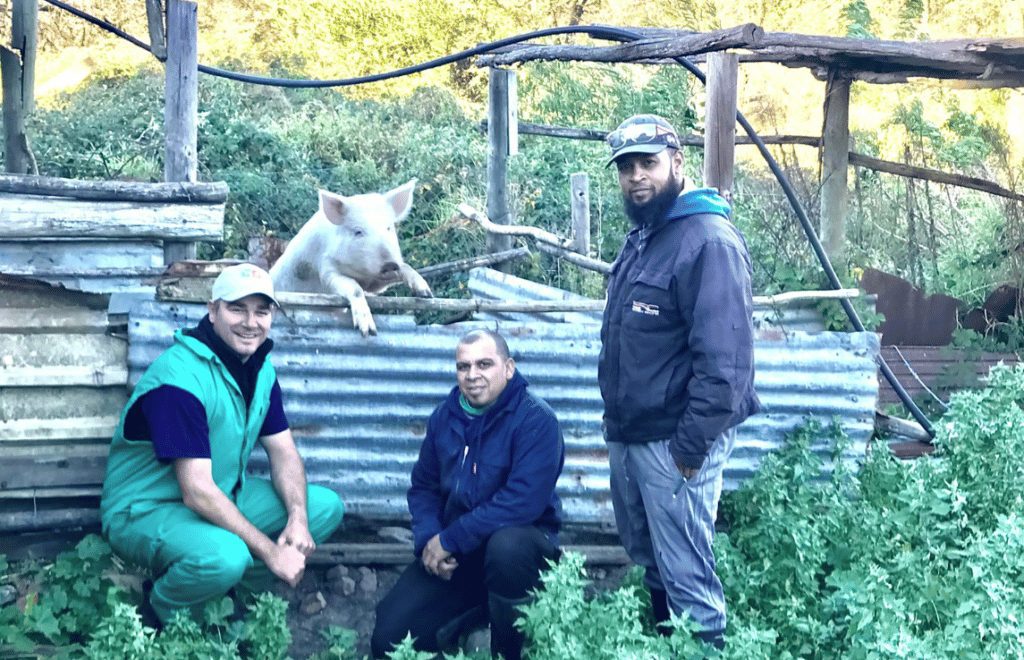Source: Melissa Cupido, Porcus July/August 2021, photo credit: Robert Brink
The majority of farmers across the different areas were above 40 years of age. It is, therefore, imperative to make pig farming attractive to the youth as well.
Possible ways to do this can involve showcasing the possible job opportunities in the pig industry and business entrepreneurship for the youth in agriculture.
Salaries and grants were the main source of income for the smallholder farmers across the different regions. Smallholder farmers did indicate their interest to expand their farming to more commercial scale operation.
This can only be achieved if challenges such as lack of capital and infrastructure and land could be addressed. As well as to provide proper training on health and nutrition management of a piggery which is still lacking in these regions.
The language in which training is done is important and it should be in the home language of the participants, since farmers in Khayelitsha were mainly Xhosa speaking and farmers in Mamre and Malmesbury Afrikaans speaking. Training material should therefore be provided in both languages.
On average the pig production per annum across the 3 regions was 37 pigs. This is a low figure when comparing to commercial pig production outputs. Some of the factors mentioned by farmers that influenced pig production was: health and nutrition management, farming experience and training. There is scope to improve pig production of smallholder pig farmers in the Western Cape if we can improve the abovementioned factors.
The marketing of pigs was not clearly described through this study but it was indicated that smallholder pig farmers prefer to sell to the informal market. Therefore, more research is needed to further elucidate the marketing of pork in the informal markets in terms of firstly, the slaughtering processes, where, how and when? and secondly to determine the meat quality and safety.
Read more
The South African Pork Producers’ Organisation (SAPPO) coordinates industry interventions and collaboratively manages risks in the value chain to enable the sustainability and profitability of pork producers in South Africa.
















